Your brain wasn’t built for speed, but fast food culture is rewiring it anyway.
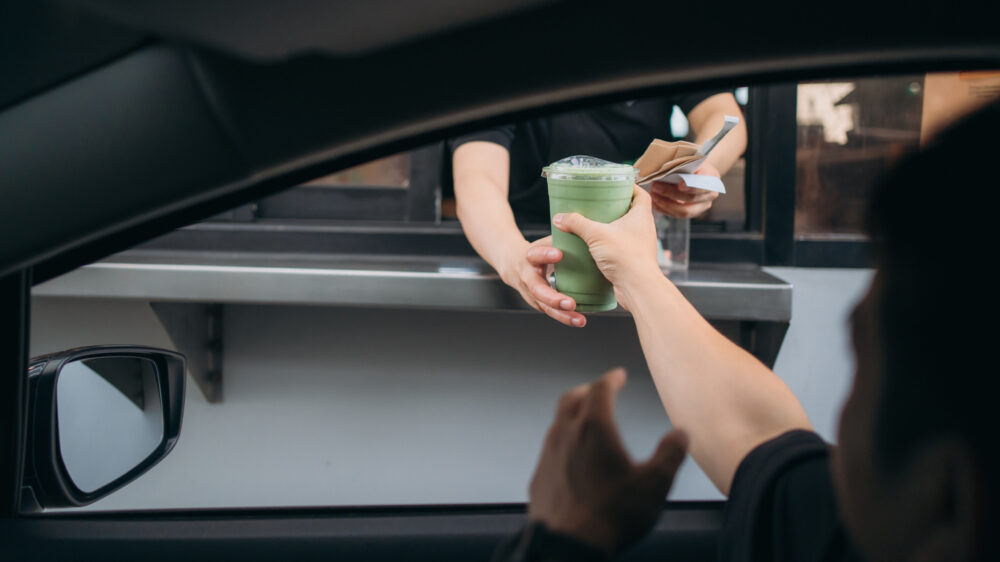
You used to have to walk into a diner, look someone in the eye, place your order, wait patiently, and maybe even chat while you ate. Now you bark into a speaker, scroll your phone until a paper bag gets shoved at you, and eat in the car with one hand on the wheel. Drive-thrus made things easier—but they also started messing with how we think, behave, and relate to the world around us.
Convenience is addictive, and fast food is its perfect delivery system. We’ve trained our brains to expect instant gratification, minimal effort, and non-stop availability, all because burgers and tacos became drive-thru staples. The change isn’t just physical—it’s psychological. Patience, attention span, and even how we treat people are subtly shaped by this grab-and-go lifestyle. You may not think that ordering a cheeseburger in under two minutes could impact your long-term thinking, but our brains are sponges. And once they’ve adapted to fast, cheap, and easy, reversing that wiring takes more than just skipping a combo meal.
1. Fast food drive-thrus are making us impatient with everything else.
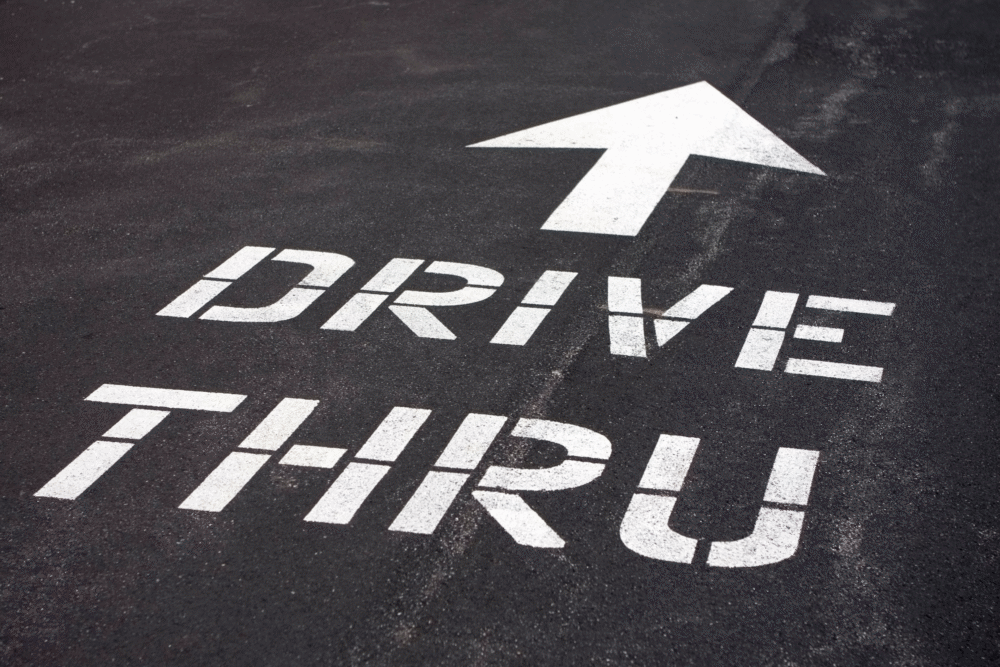
When you get used to ordering lunch, paying, and driving off in under five minutes, your brain starts expecting that pace everywhere else, according to the experts at Science Daily. You find yourself tapping the steering wheel at red lights, sighing when Netflix buffers for two seconds, or abandoning online orders because the checkout page took too long to load. The more you rely on speed, the less tolerance you have for delays—no matter how small.
Over time, this low-level frustration becomes your default setting. You might snap at your kids, feel antsy in meetings, or zone out during conversations that move at a normal human pace. It’s not that you’re rude or distracted by nature—it’s just that your brain has been trained to value speed above presence. Drive-thrus didn’t invent impatience, but they normalized it. And now we expect everything, including relationships and personal growth, to arrive as fast as a value meal.
2. Drive-thrus are disconnecting us from the ritual of eating.

There was a time when meals were events—cooked slowly, shared with others, and eaten mindfully. Drive-thrus turned eating into an errand, as reported by Kerri N Boutelle at the Cambridge University Press. Now, food is something you squeeze between errands or scarf down behind the wheel, barely tasting it. This shift rewires how your brain approaches food: not as nourishment or connection, but as a task to be completed.
The real loss isn’t in nutrition (although that’s a factor too). It’s in attention and ritual. You lose the sensory experience of smells, textures, and conversation. Meals become background noise to traffic and stress. And when your brain doesn’t register eating as a real event, you’re more likely to overeat, snack later, or forget you even had lunch. Drive-thrus feed your stomach, but they starve your ability to slow down and be present with yourself or others.
3. They teach your brain that convenience is more important than quality.
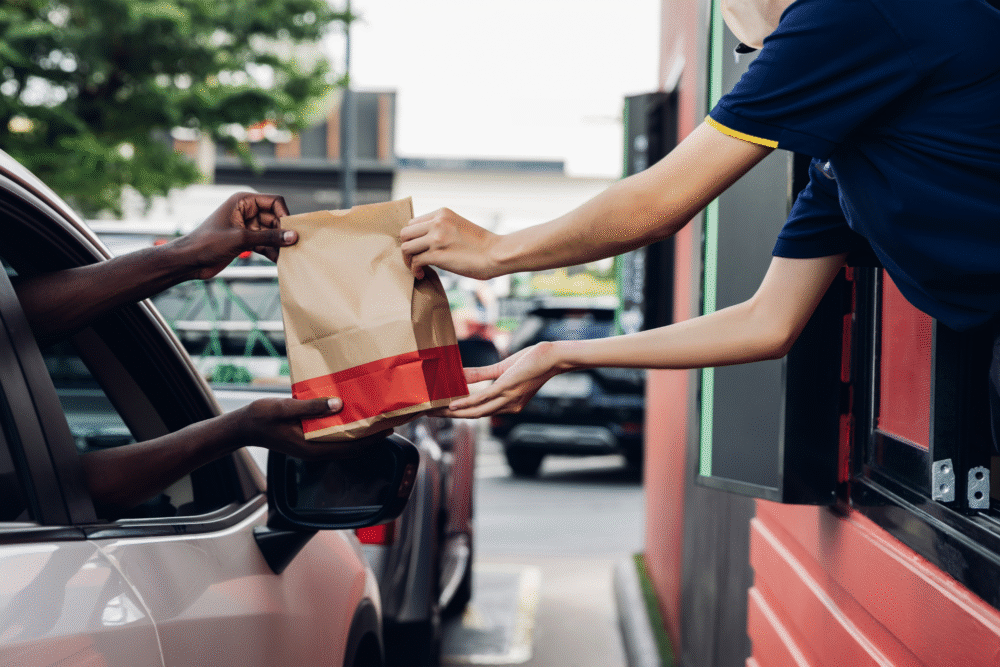
When a drive-thru gets your order wrong, you still eat it. When the fries are soggy or the bun is crushed, you shrug and move on. That’s because your brain has started valuing speed and convenience more than taste or experience. This mindset creeps into other areas of your life too—you accept rushed work, lazy conversations, or shallow entertainment because you’re used to getting what’s “good enough” fast, as stated by Timothy Huzar at Medical News Today.
This wiring becomes hard to undo. You stop reaching for better because you’re conditioned to settle for easier. Your expectations shrink, and your standards shift. Fast food didn’t just lower the bar for lunch—it started lowering it everywhere. And the worst part? You probably don’t even notice until someone hands you a lukewarm burger and you eat it anyway without thinking twice.
4. Fast food culture normalizes multitasking over mindfulness.
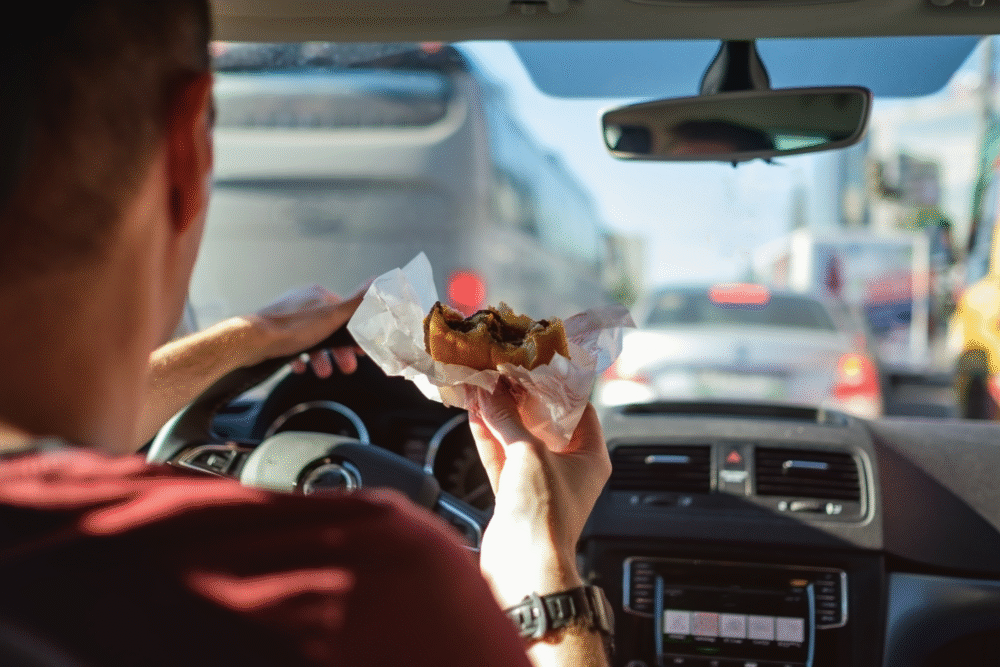
Eating in your car while checking texts and merging into traffic might feel efficient, but it’s also training your brain to be scattered. Drive-thrus promote multitasking as the norm—food is just one of the many things you’re juggling, not an activity that deserves your full attention. And once your brain gets used to this fractured focus, it’s hard to reverse.
This scattered thinking shows up later when you’re trying to have a meaningful conversation or focus on work. Your brain hops between thoughts like tabs on a browser, struggling to stay present. The habit of never stopping—never giving one thing your full attention—becomes so ingrained that even rest feels uncomfortable. You’re always bracing for the next alert, the next task, the next fix. And all that started with a burger you ate in traffic.
5. They rewire how you define satisfaction and reward.

Fast food is engineered to hit pleasure centers quickly—salt, sugar, fat, all delivered in record time. Your brain gets a dopamine spike before you’ve even finished the meal. Drive-thrus amplify this effect because they collapse the time between desire and reward. That instant feedback loop changes how you seek satisfaction in other areas of life.
Harder, slower wins—like saving money, building a relationship, or learning a skill—start to feel unrewarding by comparison. Your brain craves quick hits, not long games. It starts looking for shortcuts, even in places where none exist. The irony is that real satisfaction usually comes from effort and patience, but the drive-thru model tricks your brain into chasing cheap highs. And soon, nothing feels quite as satisfying unless it’s served with a side of immediacy.
6. They reduce your tolerance for uncertainty and nuance.

Ordering at a drive-thru is black-and-white. You get a menu, make a quick choice, and drive away. There’s no need to ask questions, make customizations, or consider options beyond the ones handed to you. Over time, this simplicity starts to influence your decision-making outside of food. You start seeking clarity over complexity, even in situations where nuance matters.
You might find yourself getting annoyed with ambiguous conversations, gray-area decisions, or open-ended questions. Your brain starts craving neat, tidy answers—even when life doesn’t work that way. The world isn’t a drive-thru menu, but your brain starts treating it like one: expecting pre-packaged options, fast decisions, and minimal effort. And that’s a real problem when the best things in life require patience, curiosity, and a bit of discomfort.
7. Drive-thrus make social interaction feel optional or inconvenient.
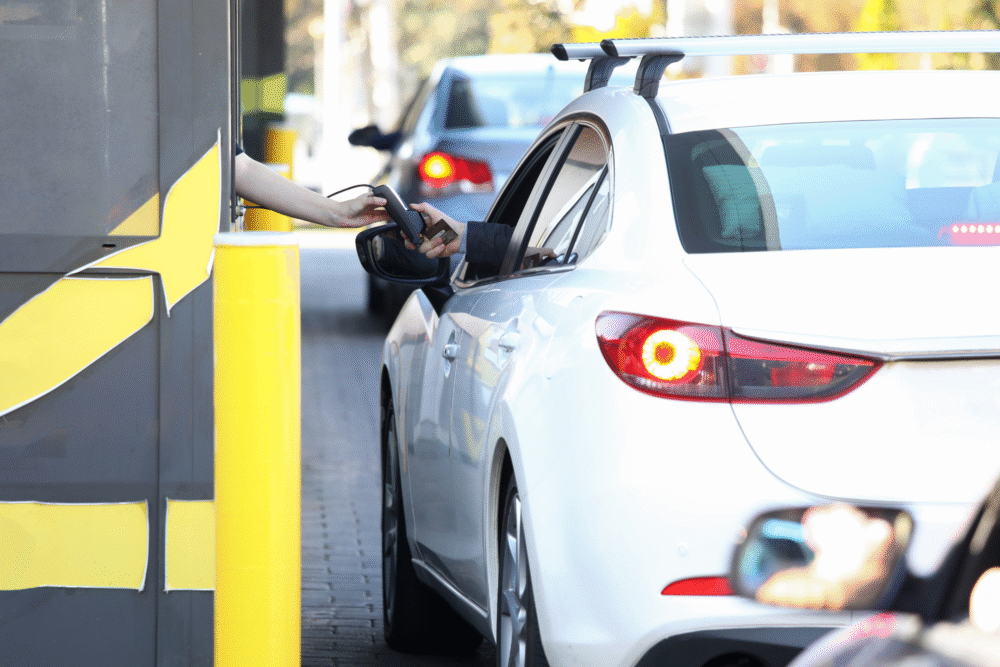
When you grab food without leaving your car or looking anyone in the eye, you slowly start losing touch with the value of human interaction. The screen takes your order, a faceless hand hands you the bag, and you’re gone. Multiply that by dozens of visits, and your brain starts viewing social moments as unnecessary friction rather than meaningful connection.
That mindset can bleed into other parts of life. You might avoid phone calls in favor of texts, skip small talk at the grocery store, or dread conversations that require attention. The expectation becomes: serve me, quickly, with no emotional labor. And while that might make sense for a drive-thru window, it doesn’t work in relationships, community, or real life. But once your brain learns to skip the person in favor of the product, undoing that pattern takes real effort.
8. They contribute to decision fatigue and mental clutter.

It seems harmless—just choose a combo meal. But the sheer number of fast food options, limited-time offers, and loyalty app deals adds noise to your mental bandwidth. Every menu becomes a tiny storm of choices, and over time, your brain starts to tire. That subtle drain follows you into the rest of your day, making it harder to focus, prioritize, or think clearly.
You don’t realize it in the moment, but the small decisions pile up. What size drink? Regular or spicy? Add a cookie for a dollar more? These micro-decisions wear down your cognitive stamina. And once your brain is fried on fast food choices, it’s less equipped to handle real ones—like managing your budget, navigating a disagreement, or staying productive. The clutter builds, and suddenly you’re tired for no obvious reason—except you’ve been bombarded by choices that shouldn’t matter but still take up space.
9. They feed an identity of “I deserve this,” even when it’s hurting you.

Drive-thrus tap into a powerful emotional script: you’re busy, you’ve worked hard, and you deserve a treat. That logic gets repeated so often it becomes a reflex. Your brain starts linking convenience food with comfort, reward, and self-care—even when the result is bloating, guilt, or regret. The short-term fix wins every time, and the longer-term cost is quietly ignored.
That pattern doesn’t just apply to food. You start using the same logic to justify late-night scrolling, impulse shopping, or skipping workouts. “I deserve this” becomes an excuse to avoid discomfort—and your brain stops challenging it. It feels like self-compassion, but it’s actually self-sabotage. Drive-thrus are just one piece of that mindset, but they’re a loud one. And once that narrative gets cozy in your head, it’s hard to rewrite.
